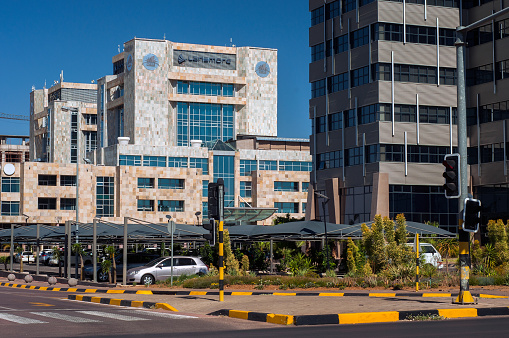Botswana’s commercial real estate market is gaining attention from investors across Africa and beyond. Known for its political stability, steady economic growth, and investor-friendly policies, Botswana presents a promising opportunity for those looking to expand their property portfolio into Southern Africa. Whether you’re considering office buildings, retail centres, or industrial spaces, understanding how to invest in Botswana’s commercial real estate is the first step to tapping into one of the region’s most underexplored yet rewarding sectors.
The first factor attracting investors is Botswana’s stable business environment. The country has maintained a consistent track record of democratic governance, low corruption levels, and transparent legal systems. These conditions offer reassurance to foreign and local investors that their assets are protected and their rights respected. Additionally, Botswana uses the pula, a stable local currency, and enjoys a relatively low inflation rate compared to many neighbouring countries.
Before investing, it’s important to understand the types of commercial real estate available. Gaborone, the capital, is the country’s main commercial hub, home to office parks, retail plazas, and warehouse developments. The city continues to expand as local businesses and multinational corporations set up headquarters, particularly in the financial, retail, and logistics sectors. Francistown, Maun, and Selebi-Phikwe are also emerging as strong regional centres with increasing commercial real estate demand.
To get started, investors should begin by conducting a detailed market analysis. This includes researching high-demand sectors—such as retail centres in urban areas or industrial parks near transport corridors. Local real estate agencies and consultants can offer invaluable insights into rental rates, occupancy levels, and growth projections in different cities or neighbourhoods. Working with professionals familiar with Botswana’s legal and financial landscape can help minimise risks and ensure compliance.
Foreigners can own commercial property in Botswana, although they must comply with certain regulations and land acquisition procedures. Leasehold and freehold options are available, with leaseholds often extending up to 99 years. Before committing to a purchase, investors should engage with the Ministry of Lands and Housing, the Botswana Investment and Trade Centre (BITC), and municipal authorities to verify zoning, land rights, and development permissions.
Financing is another key consideration. While Botswana has a well-developed banking sector, some investors may prefer to secure funding through South African or international institutions. Local banks do offer commercial property loans, particularly to businesses that demonstrate viability and strong repayment capacity. However, foreign investors might be required to provide a higher deposit or proof of funds.
Another way to participate in Botswana’s real estate market without owning physical buildings is through Real Estate Investment Trusts (REITs). While still developing, the country’s financial authorities have taken steps to introduce and regulate REITs, providing investors with access to professionally managed portfolios of commercial properties without the burden of hands-on management.
Tax incentives and government support also make Botswana attractive. The BITC offers assistance to investors, including help with permits, tax advice, and sector-specific support. Certain commercial developments—especially those that align with national economic goals like tourism, manufacturing, and services—may qualify for investment incentives such as reduced corporate taxes or duty-free importation of construction materials.
Like any investment, commercial real estate in Botswana comes with risks. These include shifts in tenant demand, infrastructure constraints in smaller towns, and potential delays in municipal approvals. However, the rewards—such as long-term capital appreciation, strong rental yields, and first-mover advantage in a growing market—can outweigh these challenges for well-prepared investors.
In 2025, Botswana remains one of Africa’s best-kept real estate secrets. By combining market research, legal guidance, and a clear investment strategy, individuals and companies can tap into the country’s rising demand for quality commercial spaces. As Botswana continues to urbanise and diversify its economy, those who enter the market early are likely to benefit most from its steady growth and favourable investment climate.










